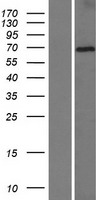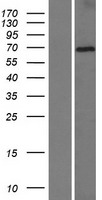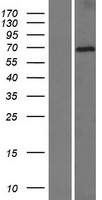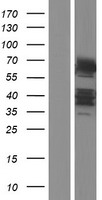order histories, retained contact details for faster checkout, review submissions, and special promotions.
Forgot password?
order histories, retained contact details for faster checkout, review submissions, and special promotions.
Locations
Orders Processing,
Shipping & Receiving,
Warehouse
2 Shaker Rd Suites
B001/B101
Shirley, MA 01464
Production Lab
Floor 6, Suite 620
20700 44th Avenue W
Lynnwood, WA 98036
Telephone Numbers
Tel: +1 (206) 374-1102
Fax: +1 (206) 577-4565
Contact Us
Additional Contact Details
order histories, retained contact details for faster checkout, review submissions, and special promotions.
Forgot password?
order histories, retained contact details for faster checkout, review submissions, and special promotions.
DTX2
deltex 2, E3 ubiquitin ligase
Regulator of Notch signaling, a signaling pathway involved in cell-cell communications that regulates a broad spectrum of cell-fate determinations. Probably acts both as a positive and negative regulator of Notch, depending on the developmental and cell context. Mediates the antineural activity of Notch, possibly by inhibiting the transcriptional activation mediated by MATCH1. Functions as a ubiquitin ligase protein in vitro, suggesting that it may regulate the Notch pathway via some ubiquitin ligase activity.
| Gene Name: | deltex 2, E3 ubiquitin ligase |
| Synonyms: | DTX2, Deltex (Drosophila) homolog 2, Deltex homolog 2 (Drosophila), HDTX2, KIAA1528, Zinc ion binding protein, Protein deltex-2, Deltex2, RING finger protein 58, RNF58 |
| Target Sequences: | AB040961 Q6XM87 Q86UW9 |











If you do not find the reagent or information you require, please contact Customer.Support@LSBio.com to inquire about additional products in development.









